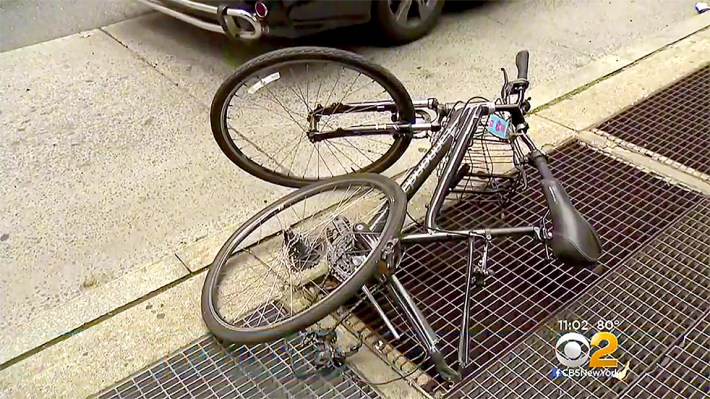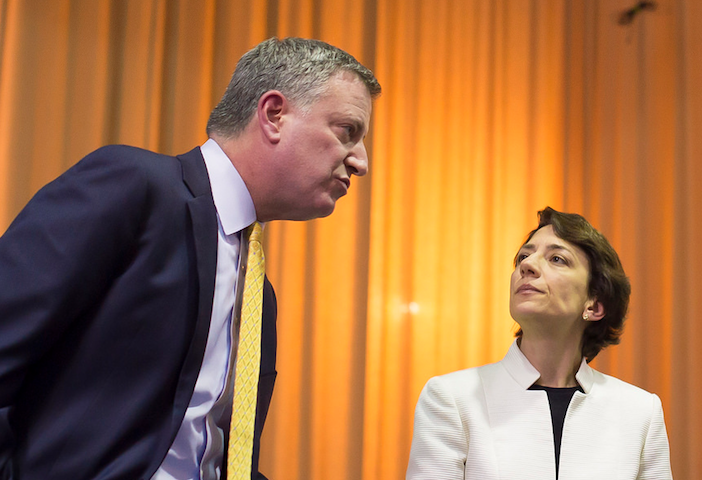DOT Commissioner Polly Trottenberg is not about to criticize her boss for the #DeBlasioStop.
Confronted on WNYC radio on Tuesday morning for her approach to clearing illegally blocked bike lanes, the mayor's transportation czar didn't have an answer — even after host Brian Lehrer played her the seminal March quote from Mayor de Blasio, "If someone is blocking, for example, a bike lane for 30 seconds while they take out their groceries or they let their kid off, I don’t think they should get a ticket for that."
"In New York, is it okay to block the bike lane, even for just a second as the mayor suggests?" Lehrer asked.
Trottenberg refused to answer directly.
"We know we have more work to do there, working with NYPD and our own city workforce, as well as the delivery companies, etc. We do need to create a culture where we try and make sure that people get out of those bike lanes," she said. "I think, as the mayor said, it still happens here, but between physical barriers and enforcement, I think we can do a lot to improve that."
The answer runs counter to the daily experience of biking on protected lanes like Clinton Street in Manhattan and Vernon Boulevard in Queens, which are frequently blocked by selfish drivers and delivery trucks. And it did not address the NYPD's lackadaisical approach to cracking down on bike-lane blockers as they make what cyclists derisively call "the de Blasio stop."
And Trottenberg's answer came just over a week after an Australian tourist was killed because a taxi driver was illegally parked in a bike lane on Central Park West, forcing her into traffic, where she was crushed by a garbage truck driver. The city's official response to that killing has been non-existent.

It's likely true that protected bike lanes are blocked less often than painted bike lanes, which allow drivers to double-park and endanger cyclists without impeding their fellow drivers. By the end of this year, however, the city will have just 120 miles of protected lanes — a mere 10 percent of the total bike network.
The singular challenge is enforcement, or the lack thereof. City employees routinely park in bike lanes, and NYPD officers are told explicitly to excuse drivers for doing so.
The NYPD sergeant in this video is very condescending to a cyclist when confronted on why he is allowing mail truck to park in the bike lane.https://t.co/I2T2MDOvfQ
— Gersh Kuntzman (@GershKuntzman) August 21, 2018
Fact: An @USPS does NOT “have every right” to park in a bike lane.@NYPDnews do you have a comment? @NYCMayor?
Trottenberg had little to offer in terms of enforcement strategies and policies to keep cars out of bike lanes. Her answer contrasted sharply with that of her counterpart from Chicago, also on the segment, who discussed how geo-located 3-1-1 complaints can help authorities identify frequently blocked locations.
All of that is out-of-sight and out-of-mind in the de Blasio administration, which gets push-back from delivery companies when it attempts even a minor reform aimed at clearing the streets. The buck stops at the mayor — making his transportation commissioner unwilling or unable to speak out forcefully on the issue of our lives (and deaths).
Lyden, after all, was the ninth cyclist killed so far this year.






